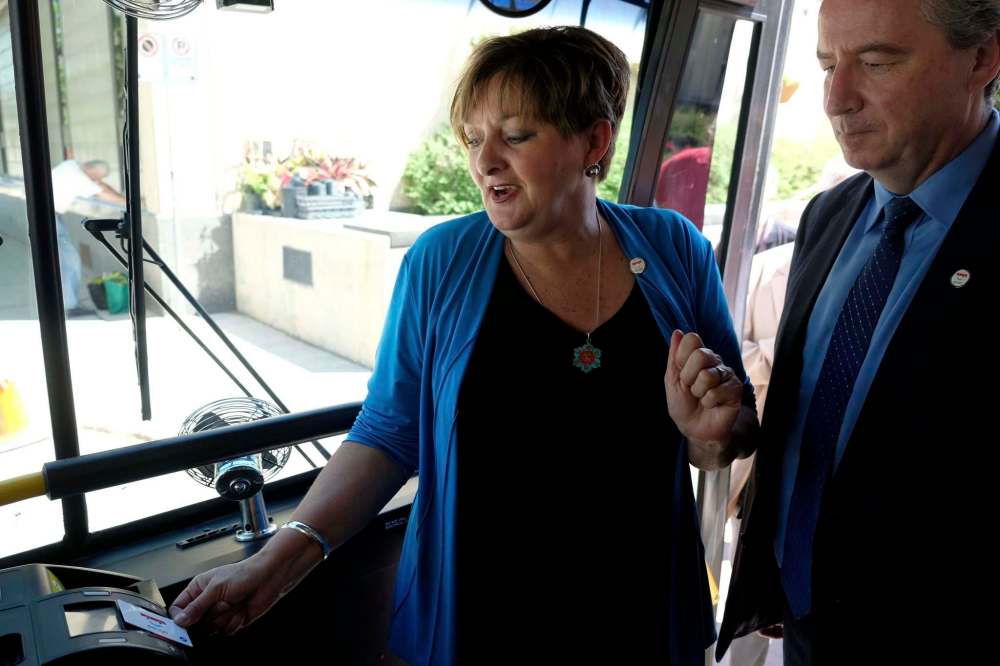Winnipeg’s latest land deal will leave us with another bad hangover
Advertisement
Read this article for free:
or
Already have an account? Log in here »
To continue reading, please subscribe:
Monthly Digital Subscription
$0 for the first 4 weeks*
- Enjoy unlimited reading on winnipegfreepress.com
- Read the E-Edition, our digital replica newspaper
- Access News Break, our award-winning app
- Play interactive puzzles
*No charge for 4 weeks then price increases to the regular rate of $19.00 plus GST every four weeks. Offer available to new and qualified returning subscribers only. Cancel any time.
Monthly Digital Subscription
$4.75/week*
- Enjoy unlimited reading on winnipegfreepress.com
- Read the E-Edition, our digital replica newspaper
- Access News Break, our award-winning app
- Play interactive puzzles
*Billed as $19 plus GST every four weeks. Cancel any time.
To continue reading, please subscribe:
Add Free Press access to your Brandon Sun subscription for only an additional
$1 for the first 4 weeks*
*Your next subscription payment will increase by $1.00 and you will be charged $16.99 plus GST for four weeks. After four weeks, your payment will increase to $23.99 plus GST every four weeks.
Read unlimited articles for free today:
or
Already have an account? Log in here »
Hey there, time traveller!
This article was published 14/06/2016 (3433 days ago), so information in it may no longer be current.
“The city is like a drunk who keeps ordering refills, hoping someone will be found to pay the tab. But unlike the drunk’s pals, Winnipeg’s taxpayers must pay up or face the consequences.”
These are the words of inimitable urban researcher Chris Leo, who has studied this city for years. He was referring to reckless spending at city hall that costs taxpayers, but that’s not the only way Winnipeggers get stuck with a high bar tab. Now, as city council grapples with a contentious land deal that could kill the bus rapid-transit plan, it may be time for the city to go to rehab.
Tuesday morning, Manitoba Hydro announced that it will sell the city the land necessary to continue to work on its BRT for the discount price of $19 million after being roasted for bargaining in bad faith. Last week, the city’s executive policy committee endorsed the purchase — initially valued 4.6 million — at $20.4 million. City administrators blame Hydro for the jump, saying the Crown corporation broke the agreement on how the land value was to be determined, but Manitoba Hydro CEO Kelvin Shepherd says that’s not the case. He says city hall administrators and Hydro began negotiations without any formal agreement in place.

There are those on city council who say that the decision to approve the inflated price was rushed through city committees. Public works chairwoman Coun. Janice Lukes (South Winnipeg-St. Norbert) says city administrators gave council little notice about the new price and insisted it be approved regardless of the implications.
This would not be nearly as upsetting if this were a once-in-a-blue-moon situation. But it’s not. City administrators have been widely criticized for their conduct in real estate transactions, so much so there have been three independent audits in recent history to document their failures. The police headquarters scandal remains raw for many Winnipeggers still trying to understand what exactly went on. The original estimate to locate the police headquarters was approved by city council at $135 million in 2009. What council didn’t know was that city administrators had in their possession a study that said the cost was really going to be $180 million.
That price went up even further, to more than $214 million in 2016. The RCMP are currently investigating Caspian Construction, alleging the company received invoices from subcontractors, increased the amounts on those invoices and then submitted inflated invoices to the city. How is that the city’s fault? Well, the city failed to ensure a project management team was in place to closely supervise the project. Now, the building is coming in over budget and well past its expected completion date — and guess who has to pick up that tab?
Scandal also followed the construction of four Winnipeg fire-paramedic stations. In 2012, it was discovered the city was building a new fire station on Taylor Avenue on land it did not own in exchange for three other properties with Shindico. That project came in at $3.2 million over budget. A review indicated the project was not well-managed. Again, someone was asleep at the switch.
This latest go-round may not be as egregious as the previous scandals, but it is still indicative of an environment in which city bureaucrats are not being as diligent as they should be in ensuring city council is aware of what’s going on and conducting city business in a way that serves the public interest.
In the spirit of Chris Leo: go home Winnipeg, you’re drunk.



